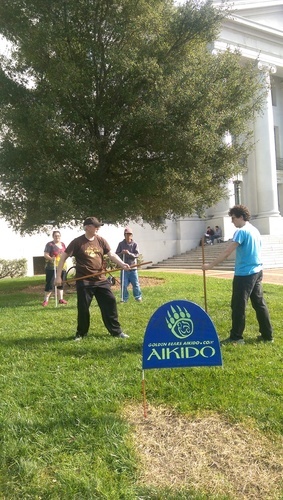
-
Balance and deploy from a position of strength while under stress, including the stress of being a student and service member
-
Plan strategically and execute tactically as part of a team striving to both meet requirements and excel
-
Transition between roles and assignments in a way that makes sense, for instance, moving between command environments and civilian life.
Everyone has a limited amount of time. Some essential skills get enough training to make a good beginning. Many necessities get less attention than they deserve. In my experience, the one essential skill that gets the least training is how to do conflict well. To be a part of any team, especially in a conflict environment, you need to be able to engage in conflict on purpose, while under stress, staying relaxed, balanced, and ready to choose the options likely to work best for everyone involved. The only way to learn this is to practice it until you can embody it even under the worst circumstances.

After getting aikido started, my students move beyond the physical movement into real-time conflict practice that is also verbal and systemic so that they can apply these practices to their learning, leadership, and longevity. In this way, physical and psychological modes begin to work together. What before seemed separate is connected: body/mind/spirit/soul moves in concert to shift conflict's rules of engagement from habits of automatic fight/ flight/ freeze to responsive, natural movement toward solutions that work in the real world.
If you want to be truly ready when duty calls, to lead and follow well, get your balance back when you lose it, and do well in whatever you choose, then the way to get there is through practice. What you do with your limited time is, finally, up to you. Please train with us, so you can be ready to do conflict well.
Many thanks to the UC Berkeley ROTC leadership for this opportunity!
Brandon Williamscraig Ph.D., Aikido 5th dan
